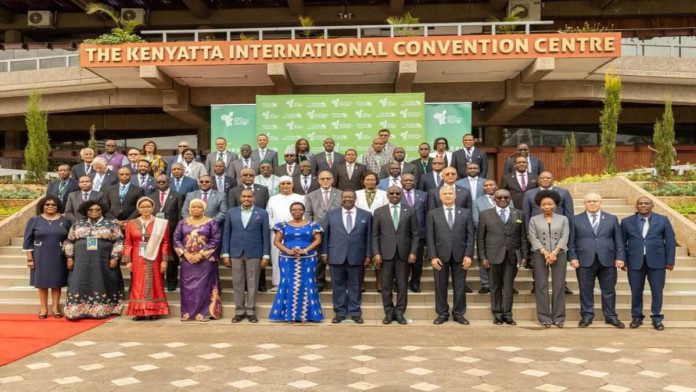News in Brief:
– The Africa Fertiliser and Soil Health Summit in Nairobi united African leaders to address food security challenges.
– A key concern was declining soil health, with calls for affordable fertilisers and a balanced approach using both organic and inorganic solutions.
A chorus of voices calling for affordable fertilisers resonated across Africa recently, as Ministers of Agriculture convened for the second Africa Fertiliser and Soil Health (AFSH) Summit, held in Nairobi, Kenya, from May 7-9, 2024.

The conference, with the theme Listen to the Soil, brought together over 2,000 stakeholders, including African heads of state, government officials, policymakers, private sector entities, and civil society organisations, in a collective effort to tackle the continent’s food security challenges.
Addressing the looming crisis of declining soil health and limited resources
Essentially, a major concern at the summit was the deteriorating condition of African soil, with some regions experiencing a staggering 65% degradation. This was re-echoed by Kenya’s Cabinet Secretary for Agriculture, Mithika Linturi, who stated that land and soil degradation have devastating consequences like reduced crop yields, food insecurity, reduced agricultural incomes, and environmental decline.
He therefore emphasised the urgent need for affordable fertilisers to reverse this trend and bolster food production especially considering the looming threats posed by climate change.
A continent divided by disparities in fertiliser use
Meantime, further discussions revealed significant discrepancies in fertiliser usage across Africa. For example, Egypt stands out as a leader, employing approximately 400 kilograms per hectare, while countries like South Sudan and the Central African Republic utilise a mere 0.02 kg and 0.23 kg per hectare, respectively.
These figures fall far below the global average of 120 kg per hectare, highlighting the need for a continent-wide strategy to address this gap, even with government subsidies already in place in many nations.
Ministers from various African nations presented real-world examples of soil degradation and fertiliser application within their regions, contributing valuable insights for crafting a comprehensive plan to ensure food and nutritional security across Africa.
Overall, the summit witnessed a wave of commitments from various organisations to support fertiliser solutions across Africa. The African Development Bank pledged to explore avenues for increased cooperation and partnerships in fertiliser financing, recognising the critical role of scaling up agritech initiatives to drive agricultural transformation.
Representatives from the Consultative Group for International Agricultural Research echoed this sentiment. They urged a swift doubling of food production to meet the demands of Africa’s rapidly growing population.



